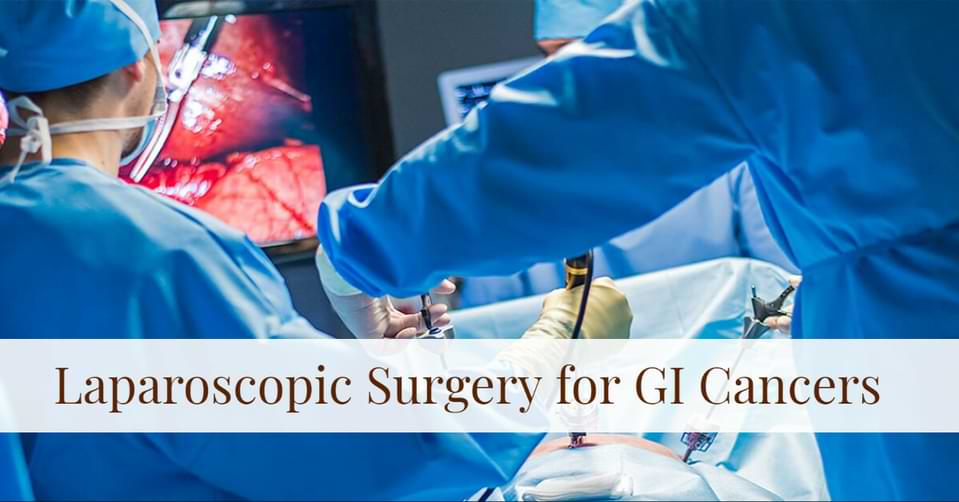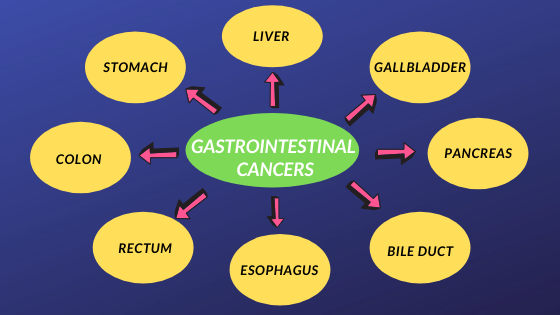Laparoscopy and cancer: when Less is more

Mr Mehta was recently promoted to the senior sales executive. His responsibilities in the office grew and so did his abdominal pain. He was ignoring it for the last 3 months as he couldn't afford a break when his promotion was due. Doctors promptly ordered investigations and he was diagnosed to have colon cancer. His treating team of doctors advised him laparoscopic colon surgery for removal of the tumour.
He broke the news to his family and friends. Jai, his neighbour and close friend said that he had heard that laparoscopic surgery is not good for cancer. Mr Mehta's surgeon smiled and explained scientifically proven benefits of laparoscopic surgery. Mehta quickly underwent the surgery and his colleagues were surprised when he was back in the office next week.
Gastrointestinal cancers
As a group gastrointestinal cancers are the most common cancers globally. Common cancers of the gastrointestinal system include cancers of the oesophagus (food pipe), stomach, colon and rectum (large intestine), gall bladder, pancreas and liver.

The operation
In surgery for GI cancers, the part of the organ involved is removed, along with adjacent tissues and lymph nodes. Traditional open surgery required a long incision on the abdomen, which resulted in delayed recovery, long hospital stays and bad scars. Surgeons developed a novel approach to minimize suffering and improve outcomes. It is also called laparoscopic, minimally invasive or keyhole surgery. Laparoscopic surgery has transformed the field of abdominal surgery. It is one of the most important innovation in the last few decades that has entirely changed the practice of surgery. It has now become a standard for most of the gastrointestinal operations.
The Technique
In laparoscopic surgery, few small holes called ports, are made in the abdomen. One of them is then used to insert a specially designed slender high-resolution camera. The camera then projects a magnified view of the inside of the abdomen onto a high definition monitor. Rest of the ports are used for inserting specially designed long and thin instruments. The surgeon deftly maneuverers the instruments looking at the monitor. Thinking of video game? But it's no child play, it requires intense training and practice.
Advantage Everywhere
Minimally invasive surgery is beneficial for the patient in several ways. A long cut in the abdomen is no longer required. Post-operative stress and pain are markedly reduced, leading to a faster recovery and shortened hospital/ICU stay The amount of blood loss in the process of surgery has decreased. There is a quicker return of intestinal movement which is lost for some time after an open abdominal operation. The overall complication rate is decreased. All this results in earlier return to home and work. Absence of long scar is pleasant to the eyes.
Benefits of laparoscopic surgery |
|---|
|
Proven with Research
Any new technique in medical science is initially treated with a lot of scepticism and so was minimally invasive surgery for gastrointestinal cancer. To be accepted as the standard, the technique has to pass through rigorous scientific trials and prove itself. Laparoscopic GI cancer surgery was tested in such trials and the benefits were verified across the globe.
In the United States, the COST study group was formed to study laparoscopic surgery for colon cancer. In Europe, it was tested in COLOR trial and in the United Kingdom by researchers of the CLASSIC trial. These researchers concluded that chances of getting rid of cancer with laparoscopic surgery were as good as open surgery. The patients undergoing laparoscopic surgery had less blood loss, shorter hospital stay and less pain medication requirements.
Similar results have been shown in other GI cancers. TIME trial in Amsterdam showed that minimally invasive surgery for oesophageal cancer caused lower pulmonary infection with similar chances of cure. In Japan, where gastric cancers are more common, laparoscopic gastric cancer surgery showed similar results in research.
Watch out
Minimally invasive surgery has many of the same risks as regular, open surgery. In cancer surgery removing the affected organ to clear margins and all draining lymph nodes is important. In an attempt to do the surgery laparoscopically, this surgical principle should not be compromised. Make sure your surgeon is skilled and is well versed in these operations. Moreover, many advanced GI cancers require complex steps which cannot be performed with laparoscopic technique. In such cases, the conventional open approach is better. Have a frank discussion with your surgeon.
Be alert and stay healthy. Happy living!!


